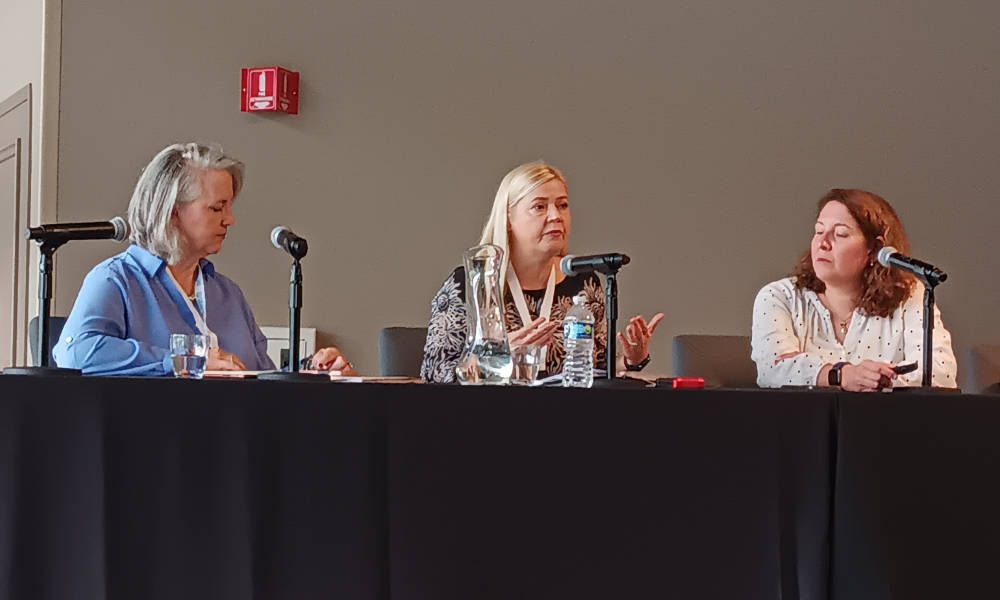In Rhode Island, people on voluntary self-exclusion (VSE) lists must go to a therapist to be able to gamble again. In other jurisdictions, self-excluded patrons must submit a petition and appear before a board to be reinstated.
“It’s dramatically different in each jurisdiction,” said Massachusetts Council on Gaming and Health CEO Marlene D. Warner Wednesday during a responsible-gaming roundtable at the GLI Regulators Seminar that runs in conjunction with the National Council of Legislators from Gaming States (NCLGS) Summer Meeting. “Reinstatements are becoming more the rule than the exception in terms of having some criteria and not just, poof! And one day your time is elapsed.”
The panel discussion, which kicked off four days of NCLGS sessions and activities at Rivers Casino in Pittsburgh, explored self-exclusion policies and principles and how they’re applied to commercial and tribal gambling operations in various jurisdictions.
One element emphasized was that those who have asked to be placed on voluntary self-exclusion lists should be treated with equanimity. According to the panelists, in some instances, people on VSE lists were treated like criminals when they returned to properties.
“It’s a very complicated issue,” said Jennifer Shatley, executive director of the Responsible Online Gaming Association. “You need to think about it as a mental-health issue and what’s the best approach to it, rather than making this a criminal activity or as an enforcement mechanism against everybody else.”
“This isn’t meant to be a criminal proceeding,” Warner agreed. “They’ve asked for your help. Lend it to them. Think about it as a compassionate approach and make sure they’re escorted out with respect.”
Approximately 3.5% of all adults have trouble with gambling. Voluntary self-exclusion programs were developed as a tool to help those with issues, and the terms and conditions vary.
In Washington state , according to State Representative Shelley Kluba, periods of self-exclusion last for either one, three, five, or ten years, with no rescindment of those periods.
“Once you’re admitted to that amount of time, you’ll continue to be on that list,” Kluba said. “We wanted it to be an active step you have to take if you place yourself on that list and it’s going to be an active tool in your recovery; you need to actively say that you’re signing up for one year. At the end of that time, they let you know you’re coming off that list and if you want to come off the list, here’s the form.”
According to Shatley, a person who signs up for self-exclusion should not automatically be viewed as being diagnosed with a gambling problem or disorder.
“Certainly, it could be because they’re having gambling-related issues,” Shatley said. “Or maybe there’s been a death in the family and they realize they shouldn’t be gambling during this time. Maybe they’re just spending a little more money than they think they should at the time.”
Shatley added that she’s seen some jurisdictions make people on voluntary self-exclusion lists declare they have a gambling disorder or issue.
“That is probably not appropriate, because again, this isn’t a diagnosis,” Shatley said. “You don’t want to put in a deterrent to people signing up. So, if somebody doesn’t want to make that declaration, it may deter them from self-excluding, which they need to do. They don’t want to make that public declaration, because it’s not true or they don’t want to make that declaration public. And those are some of the things you need to take into consideration.”



